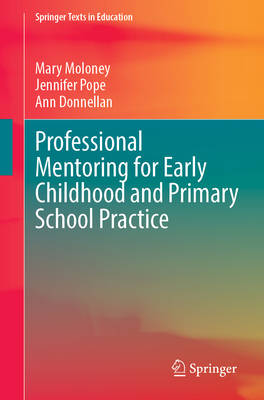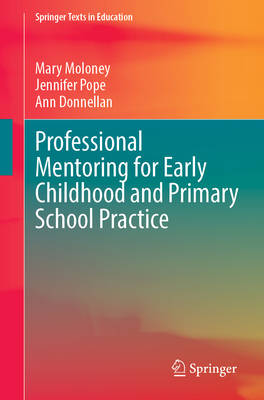
- Afhalen na 1 uur in een winkel met voorraad
- Gratis thuislevering in België vanaf € 30
- Ruim aanbod met 7 miljoen producten
- Afhalen na 1 uur in een winkel met voorraad
- Gratis thuislevering in België vanaf € 30
- Ruim aanbod met 7 miljoen producten
Professional Mentoring for Early Childhood and Primary School Practice
Mary Moloney, Jennifer Pope, Ann DonnellanOmschrijving
Informed by current theory and practice, this book adapts a practical approach to mentoring that is grounded in real life experiences. Written in an accessible style, it explores the key concepts, characteristics and considerations of mentoring and mentoring relationships in early childhood and primary education contexts. With a focus upon mentoring as it applies to practicum during initial teacher education, as well as teacher induction, different models and approaches to mentoring, including dyads, triads, peer mentoring, critical friends and communities of practice (CoP) are introduced and evaluated.
Engaging with theory, practical scenarios, key learning and reflection points throughout, the book invites the reader to reflect on the mentoring process from different perspectives to build the critical skills required by mentors and mentees alike, to create or enhance a culture of mentoring within their organisation. Written from the perspective of both mentors and mentees, the book is a valuable resource for those in the Further and Higher education sectors, as well as early childhood and school-based mentors. It is relevant to experienced mentors, who may wish to affirm their existing approach to mentoring, or want to explore, discover and embrace new and improved ways of working with a mentee. This book is also essential reading for anyone interested in mentoring, providing a wealth of information, insights and effective strategies for those who may be thinking of undertaking a mentoring role.
Specificaties
Betrokkenen
- Auteur(s):
- Uitgeverij:
Inhoud
- Aantal bladzijden:
- 214
- Taal:
- Engels
- Reeks:
Eigenschappen
- Productcode (EAN):
- 9783031371851
- Verschijningsdatum:
- 2/08/2023
- Uitvoering:
- Paperback
- Formaat:
- Trade paperback (VS)
- Afmetingen:
- 156 mm x 234 mm
- Gewicht:
- 326 g

Alleen bij Standaard Boekhandel
Beoordelingen
We publiceren alleen reviews die voldoen aan de voorwaarden voor reviews. Bekijk onze voorwaarden voor reviews.









